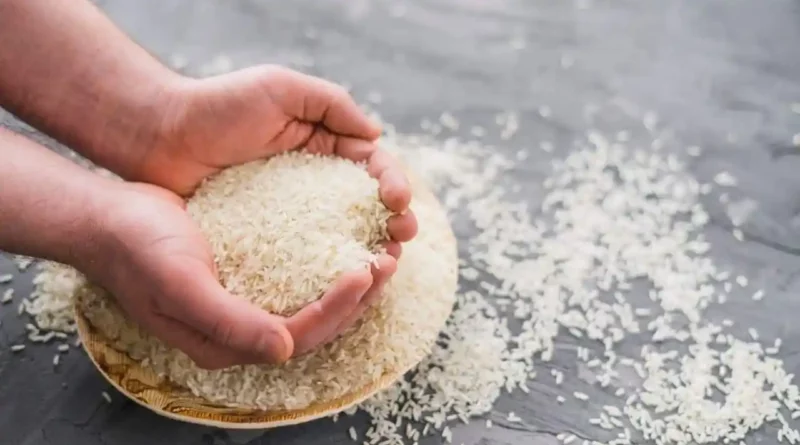Basmati output rises to 13 mt, yet prices climb for millers, consumers
By Harish Damodaran
India’s basmati paddy output is up from 11 million tonnes (mt) in 2022-23 to 13 mt this year, yet both millers and consumers are paying more for the premium grain.
“The crop size is bigger this time, but we have paid an average price of Rs 50 per kg for paddy delivered at our plant, versus around Rs 46 in 2022-23. Farmer realisations have correspondingly risen from Rs 41-42 to Rs 44-45,” said Kunal Gupta, senior manager (procurement & production) at KRBL Ltd, India’s largest basmati miller and branded rice seller.
He attributed the higher prices to export demand and a growing domestic market.
Last year’s 11 mt basmati paddy production would have yielded about 7.25 mt of milled rice (at 66 per cent recovery) and 5.5 mt of “head” or non-broken grain (at 50 per cent). India exported 4.56 mt of basmati rice in 2022-23. Shipments during April-November 2023, at 2.99 mt, were 9.6 per cent more than the 2.73 mt for the corresponding eight months of 2022-23.
The Centre hasn’t imposed any export prohibitions on basmati rice, unlike with non-basmati grain. The latter exports have dipped 33.5 per cent from 11.57 mt in April-November 2022 to 7.69 mt in April-November 2023. Basmati shipments, entirely comprising head rice, are continuing as before on the back of robust demand.
The second reason for price rise has to do with the domestic market, accounting for the balance 2.7-3 mt. That market is growing, especially in the non-metros and also the South, which is not a traditional basmati consumer.
“Between 2016-17 and 2022-23, the top 10 cities have seen their share in domestic packaged basmati rice sales fall from 60 per cent to 40 per cent. It has shrunk more, from 48 per cent to 30 per cent, for metros in the South,” noted Ayush Gupta, KRBL’s business head.
The domestic market in basmati is also under-penetrated relative to other FMCG products – soap, shampoo, toothpaste or even edible oils. “We have consumers upgrading, from non-basmati to basmati as well as from loose, non-branded to branded packs in the latter,” he added.
The growing domestic market, plus exports, has resulted in the average retail price of branded basmati rice (across categories from broken to aged whole grains) going up from Rs 80 to Rs 90/kg in the last one year. The modal price of regular non-basmati rice has also increased – from Rs 35 to Rs 40, as per the department of consumer affairs – despite curbs on exports. That has been primarily due to a smaller non-basmati crop this year from subnormal monsoon rain.
Out of the nearly 3-mt domestic basmati market, one mt is constituted by head rice. KRBL claims to have a 0.25 mt (25 per cent) share of that through its ‘India Gate’ (up to 2-years aged white rice) and ‘Unity’ (steamed rice) brands. The 3-mt market also comprises in-home (1.8 mt) and institutional (1.2 mt; mainly hotels, restaurants and caterers) consumption, with the former being further sub-divided into branded/packaged (0.6 mt) and unbranded/loose (1.8 mt).
KRBL’s basmati rice sales totaled 0.7 mt last year – 0.45 mt domestically and 0.25 mt of exports. The 0.45 mt domestic sales included both head (0.25 mt) and broken rice (0.2 mt). “We cater to all basmati rice segments (whether white, steamed and parboiled or head and broken). Our effort is to move the consumer from unbranded to branded,” said Gupta.
KRBL claims to have the world’s largest integrated rice mill at Dhuri in Punjab’s Sangrur district.
With a milling capacity of 2,500 tonnes per day, it has facilities to store 0.5 mt of paddy and 0.2 mt of rice, besides a 12.5-megawatt power plant and units to process 250 tonnes/day of bran (into oil) and produce 10 tonnes/day of furfural (a chemical). The latter three use the husk (the inedible covering of paddy grain) and bran (the brown outer layer of the edible kernel) that are byproducts of rice milling.
This article has been republished from The Indian Express.

